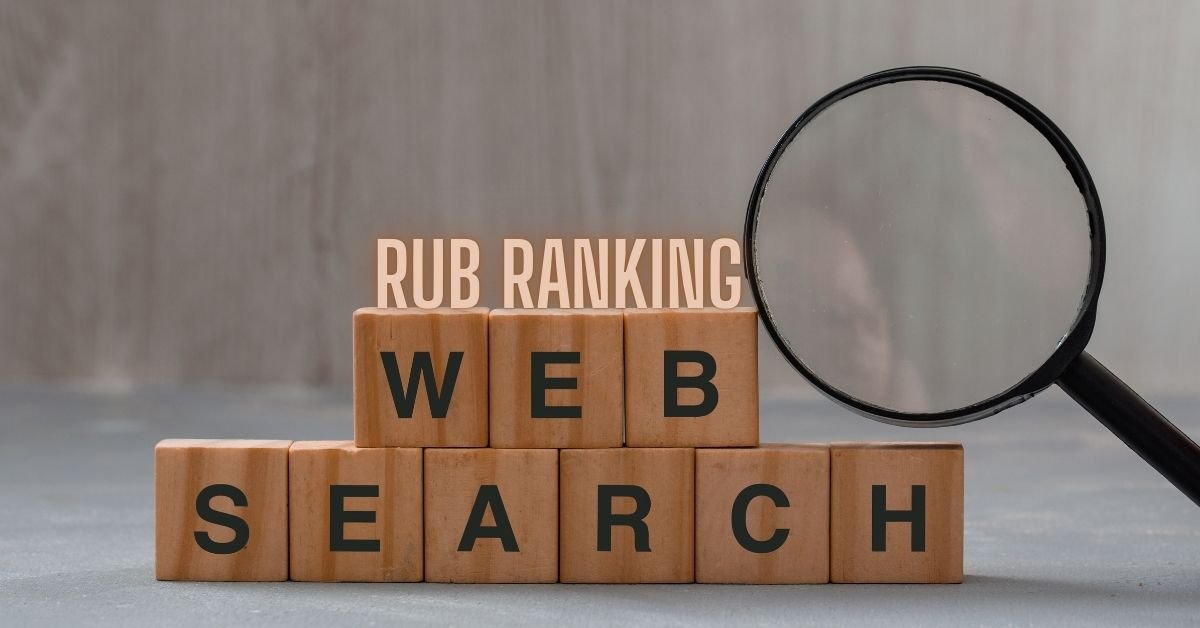Contents
- 1 Introduction
- 2 Understanding the Concept of Rub Ranking Guide
- 3 The Growing Role of Ranking Systems Online
- 4 How the Rub Ranking Guide Claims to Work
- 5 The Question of Legitimacy
- 6 Transparency and Trust Issues
- 7 The Influence of Commercial Interests
- 8 User Experiences and Community Feedback
- 9 Comparisons With Other Ranking Systems
- 10 The Impact on Decision-Making
- 11 Ethical Considerations
- 12 Why Legitimacy Matters in the Digital Age
- 13 Addressing the Concerns
- 14 The Future of Ranking Guides
- 15 FAQs
- 16 Conclusion
Introduction
The online world is overflowing with platforms that rank products, services, or even people. In this digital crowd, the Rub Ranking Guide has emerged as a system that claims to provide clarity. It presents itself as an authority, giving users a sense of order in a space where information often feels chaotic. Yet, its rise has sparked curiosity and criticism in equal measure, with many wondering whether it truly delivers on its promises.
Legitimacy is the central question surrounding the Rub Ranking Guide. People rely on rankings to make decisions quickly, often without investigating how those rankings are calculated. If the system is biased or influenced by hidden factors, the consequences can be serious. To truly understand its value, it is important to explore how the Rub Ranking Guide operates, the transparency behind it, and how it compares with other systems.
Understanding the Concept of Rub Ranking Guide
At its core, the Rub Ranking Guide is presented as a tool that organizes and evaluates information. It positions itself as a reliable source for sorting through digital noise and helping users focus on what matters. The appeal lies in its promise to save time and simplify complex choices by presenting a clear hierarchy of quality.
However, the real challenge begins when one tries to uncover the principles guiding these rankings. Unlike some established platforms that share their methodologies, the Rub Ranking Guide tends to keep its processes vague. This creates room for doubt and leaves users questioning whether the rankings reflect true merit or something less objective.
The Growing Role of Ranking Systems Online
Ranking systems have become a natural part of how people navigate the internet. From choosing the best hotels to evaluating professional services, users often turn to rankings for quick answers. The simplicity of scanning a list is far more appealing than sifting through endless reviews or data.
The Rub Ranking Guide fits into this wider landscape by positioning itself as another authority in the digital ranking ecosystem. Its presence reflects a broader trend in which trust is placed in algorithms rather than personal research. But the growing dependence on such tools makes the issue of legitimacy even more significant. A flawed system can lead millions to misinformed choices.
How the Rub Ranking Guide Claims to Work
The Rub Ranking Guide suggests that its system is built on data-driven methods. It implies that multiple factors are taken into account, ranging from quality indicators to user activity. This creates the impression of a comprehensive evaluation designed to deliver balanced results.
Despite these claims, the lack of specific explanations weakens its credibility. Users cannot verify whether the ranking formula is fair or manipulated. Without access to the details, people are left to trust the guide blindly, which naturally raises concerns. For a ranking system, secrecy can easily be interpreted as a sign of bias.
You Might Also Like Innøve Defined: A Complete Guide to Smarter Innovation
The Question of Legitimacy
Legitimacy is more than just being functional. It requires the consistent application of fair standards and the absence of hidden agendas. For the Rub Ranking Guide, legitimacy is a topic of debate because its process remains shrouded in uncertainty.
A legitimate system should show that it treats all entries equally, without giving preference to those who may have outside influence. Without that assurance, rankings can mislead rather than guide. In this context, the Rub Ranking Guide’s legitimacy continues to be questioned by both skeptics and cautious users.
Transparency and Trust Issues
Transparency is the foundation of trust. When a ranking platform reveals how it evaluates entries, users feel more confident relying on its outcomes. Unfortunately, the Rub Ranking Guide does not disclose much about its internal workings.
This lack of openness has created an atmosphere of doubt. Even if the system is accurate, the absence of proof leaves room for suspicion. Users often prefer platforms that make them feel informed, not left in the dark. Until transparency improves, trust in the Rub Ranking Guide will remain limited.
The Influence of Commercial Interests
Commercial influence is one of the biggest threats to any ranking system’s legitimacy. If money or partnerships affect placements, then the rankings lose their integrity. Many platforms in the past have faced accusations of favoring those who contribute financially, whether openly through advertising or subtly through behind-the-scenes agreements.
For the Rub Ranking Guide, concerns about commercial influence cannot be ignored. If it gives priority to certain names because of financial arrangements, then it stops being a true guide and becomes a marketing tool. This is why users often ask whether its results can be trusted at face value.
User Experiences and Community Feedback
User feedback plays a major role in shaping the reputation of any online system. The Rub Ranking Guide has received a variety of responses. Some people find its structure helpful and appreciate the way it simplifies choices. Others criticize it for being unreliable, inconsistent, or even misleading.
These mixed reviews show that legitimacy is not just about technical processes but also about user perception. If a significant number of people believe that the system is flawed, then its credibility will continue to decline. On the other hand, strong positive experiences can still create loyal followers, even without full transparency.
Comparisons With Other Ranking Systems
| Feature | Rub Ranking Guide | Established Ranking Platforms |
|---|---|---|
| Transparency of Method | Often unclear, limited details | Usually provide at least partial methodology |
| User Trust | Mixed reviews, some skepticism | Generally higher, though not perfect |
| Commercial Influence | Concerns about hidden bias | More openly regulated, some declare sponsorships |
| Community Engagement | Limited interaction with users | Stronger engagement through reviews and forums |
| Overall Legitimacy | Questioned due to lack of clarity | Higher credibility based on proven track record |
This comparison highlights the challenges faced by the Rub Ranking Guide. While other platforms may not be flawless, they tend to provide greater transparency and involve their communities in meaningful ways. By contrast, the Rub Ranking Guide appears more distant, which undermines its authority.
The Impact on Decision-Making
The real-world impact of ranking systems should never be underestimated. When people rely on a guide to make choices about services, products, or even information, the quality of the ranking directly affects their decisions. A flawed system can misdirect users, wasting time and money.
In the case of the Rub Ranking Guide, the risks are significant. If users assume its rankings are accurate without questioning them, they may end up with poor outcomes. This shows why legitimacy is not just a matter of reputation but a practical necessity for protecting users.
Ethical Considerations
Every ranking system carries ethical responsibility. By shaping decisions, it influences both individual outcomes and broader markets. If a platform prioritizes profit over fairness, it acts unethically and damages trust in the digital ecosystem.
The Rub Ranking Guide, like others, must balance its business goals with its duty to provide unbiased information. Failure to do so risks not only its own credibility but also the broader perception of online ranking systems in general. Ethics, therefore, are central to its long-term survival.
Why Legitimacy Matters in the Digital Age
The digital world is flooded with information, but not all of it can be trusted. Ranking systems act as filters, helping users navigate this overwhelming flow. For that reason, legitimacy is the single most important quality for any such platform.
If the Rub Ranking Guide cannot establish legitimacy, it will remain on the sidelines as users gravitate toward more trustworthy alternatives. Its future relevance depends entirely on whether it can prove that its process is fair, transparent, and reliable.
Addressing the Concerns
The creators of the Rub Ranking Guide have the opportunity to resolve many of the concerns currently surrounding it. By openly disclosing its methods, engaging more with users, and ensuring independence from commercial influence, the platform could shift public perception.
Addressing these areas would not only strengthen its reputation but also help it compete with other ranking systems more effectively. Without such steps, however, skepticism is likely to persist and grow stronger over time.
The Future of Ranking Guides
Ranking guides are not going away anytime soon. As digital spaces expand, people will continue to look for simplified ways to evaluate choices. This means the Rub Ranking Guide still has potential, provided it adapts to the new expectations of transparency and accountability.
If it evolves in the right direction, it could establish itself as a respected authority in its niche. If not, it risks being dismissed as another tool that failed to live up to its promises. The future will be shaped by how well it responds to the growing demand for honesty and legitimacy.
You Might Also Like Edivawer: Your Guide to Digital Innovation & Creative Empowerment
FAQs
What is the Rub Ranking Guide?
The Rub Ranking Guide is a digital ranking system that organizes and evaluates information, products, or services, though its methodology is not clearly explained.
Is the Rub Ranking Guide reliable?
Opinions are divided. Some users find it helpful, while others question its transparency and potential biases.
Why is legitimacy important for ranking systems?
Legitimacy ensures fairness, accuracy, and objectivity, which are essential for helping users make informed decisions.
Can commercial interests affect the Rub Ranking Guide?
There are concerns that financial arrangements may influence rankings, raising doubts about its authenticity.
How can the Rub Ranking Guide improve?
It could improve by disclosing its evaluation process, avoiding commercial bias, and engaging more openly with its user community.
Conclusion
The Rub Ranking Guide illustrates both the promise and the pitfalls of online ranking systems. While it offers users a structured way to navigate overwhelming information, its lack of transparency and potential for commercial influence raise serious concerns. The debate over its legitimacy highlights the importance of fairness, ethics, and accountability in digital systems.
For users, the safest approach is to treat the Rub Ranking Guide as one of many tools rather than relying on it completely. For the creators, the challenge is to prove that the system deserves the trust it seeks. If it can evolve toward transparency and fairness, the Rub Ranking Guide may yet secure a meaningful place in the digital world.




